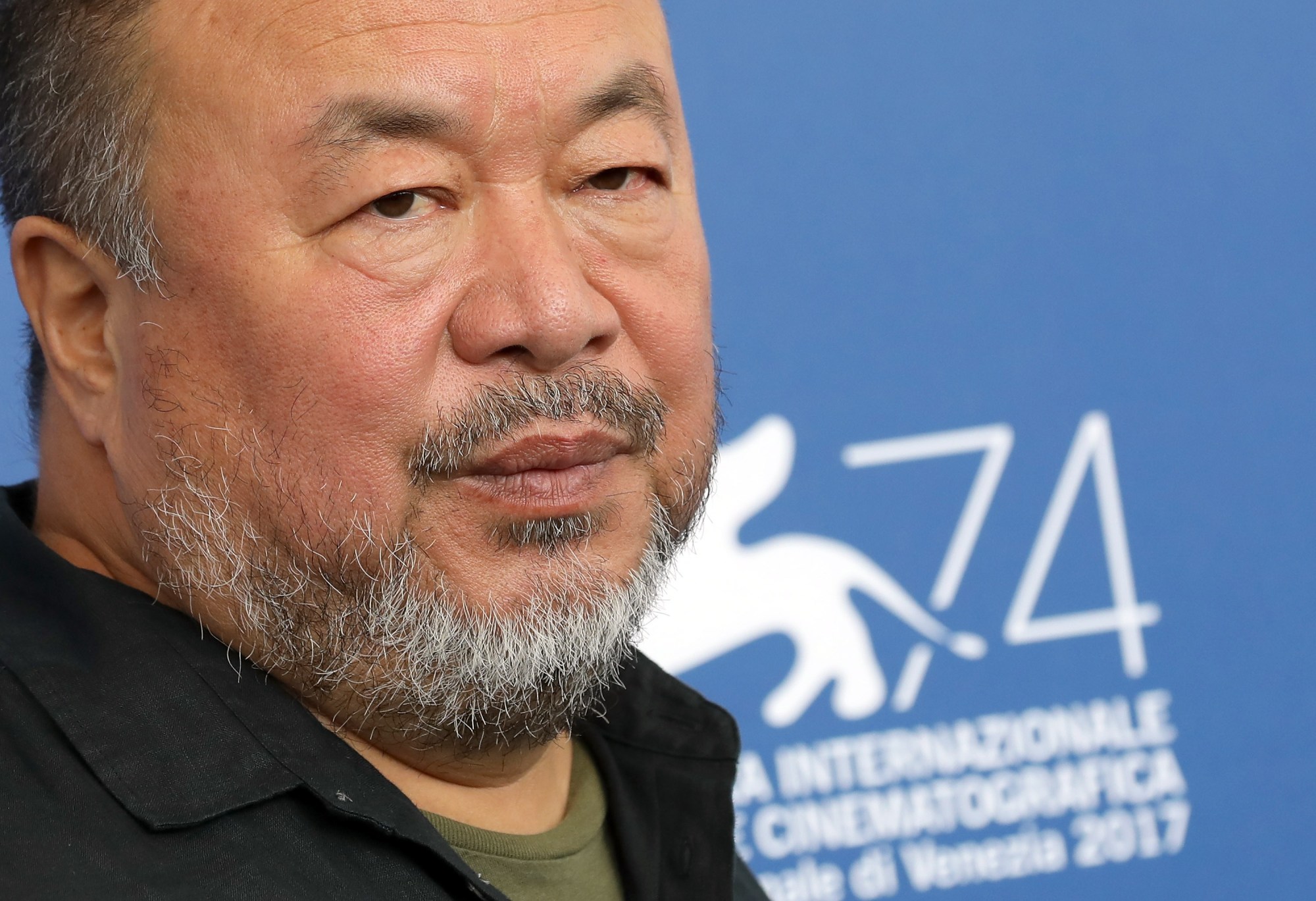
- Festivals
In Venice, Ai Weiwei Bears Witness to a Global Crisis
In Venice, Ai Weiwei is more likely be expected to be at home across the lagoon, at the Biennale of contemporary art concurrently showing at the Arsenale, but this year the Chinese artist is walking the carpet at the film festival. Human Flow, Ai’s first foray in the feature-length documentary form, is a powerful indictment of the global refugee crisis engulfing the world.
As pointed out by the official notes: “Over 65 million people around the world have been forced from their homes to escape famine, climate change and the war in the greatest human displacement since World War II.” Human Flow attempts to give a human face to the staggering exodus which is reshaping the world we live in, with far reaching consequences.
To make the film – a Participant Media production – Ai and an international team of collaborators visited 40 refugee camps in 23 countries, beginning with the Greek Island of Lesbos, which became a flash point as waves of Syrian, Afghan and Iraqi refugees began washing ashore seeking European refuge from nearby Turkey.
Ai Weiwei had already addressed the issue photographing himself in the pose of the dead infant who had washed onto a Greek beach and producing a large scale installation in Germany using thousands of life vests discarded by the asylum seekers.
But he also felt the phenomenon needed a more detailed accounting. In Human Flow, he takes his crew to the infamous Idomeni camp on the Greek-Macedonian border, where refugees trying to make their way North to Germany and Scandinavia became stuck in limbo as successive borders were sealed throughout the Balkans.
Ai eschews narration, simply quoting the occasional newspaper headline. Instead he trains his lens on the faces and voices of his subjects, attempting to restore the human dignity they were robbed of when they had to flee their lives, and a second time when they were reduced to mere faceless statistics on the evening news. The artist makes a point of personally traversing the camps speaking to, hugging, sharing food with and generally recognizing the refugees as people: a direct, close up gaze which implies the collective responsibility of ignoring their plight.
His crew is in Italy, where the exodus is currently at its most dramatic with thousands losing their lives in the perilous crossing of the Mediterranean, and in Palestine, where refugee camps have become home to successive generations of permanently displaced people. They travel to France and Germany, Turkey, Kurdistan and ultimately to Tijuana and the US-Mexico border to render the global and biblical proportion of the problem.
The fact that Human Flow had its premiere in Italy, a country whose government has recently resorted to agreements with militias and Libyan warlords to detain migrants, only serves to underline the film’s tragic urgency.
In recent years Ai Weiwei has risen to tower over the landscape of contemporary art. A master at deftly mixing conceptual art and provocative sociopolitical themes, he rocketed to universal adulation and official praise in his native China, then almost as quickly ran afoul of the powers that be, whose political transgressions he unflinchingly denounced. He ascribes his intolerance of abuse and injustice to having been raised the son of a persecuted poet during the Cultural Revolution.
His exploits and running battles with the Chinese government were detailed in Ai Weiwei Never Sorry, a 2012 documentary on his art and activism. Now he has himself taken up the camera pointing it at the planet’s preeminent political and moral crisis affecting millions of people and which has given rise to a nationalism not seen since the middle of the past century.
Ironically, being Chinese affords him a measure of neutrality which might elude a western observer, given the West’s longstanding involvement and regional interventions. Yes, a measure of awkwardness remains as a famous and wealthy art celebrity meets the truly stateless. Ai does not deny that dynamic but to HFPA journalists here he mused: “Do we have a choice? Our own individual experiences and background make us (who we are) but at the same time we have enough intelligence to put us in the others’ condition to look and to reflect. It is a question of identity and as a filmmaker and an artist I always struggle in that manner. The film provides the possibility to reflect (on) it.”
And the painful images of Human Flow will hopefully help the rest of us to learn the crucial lesson of compassion.

